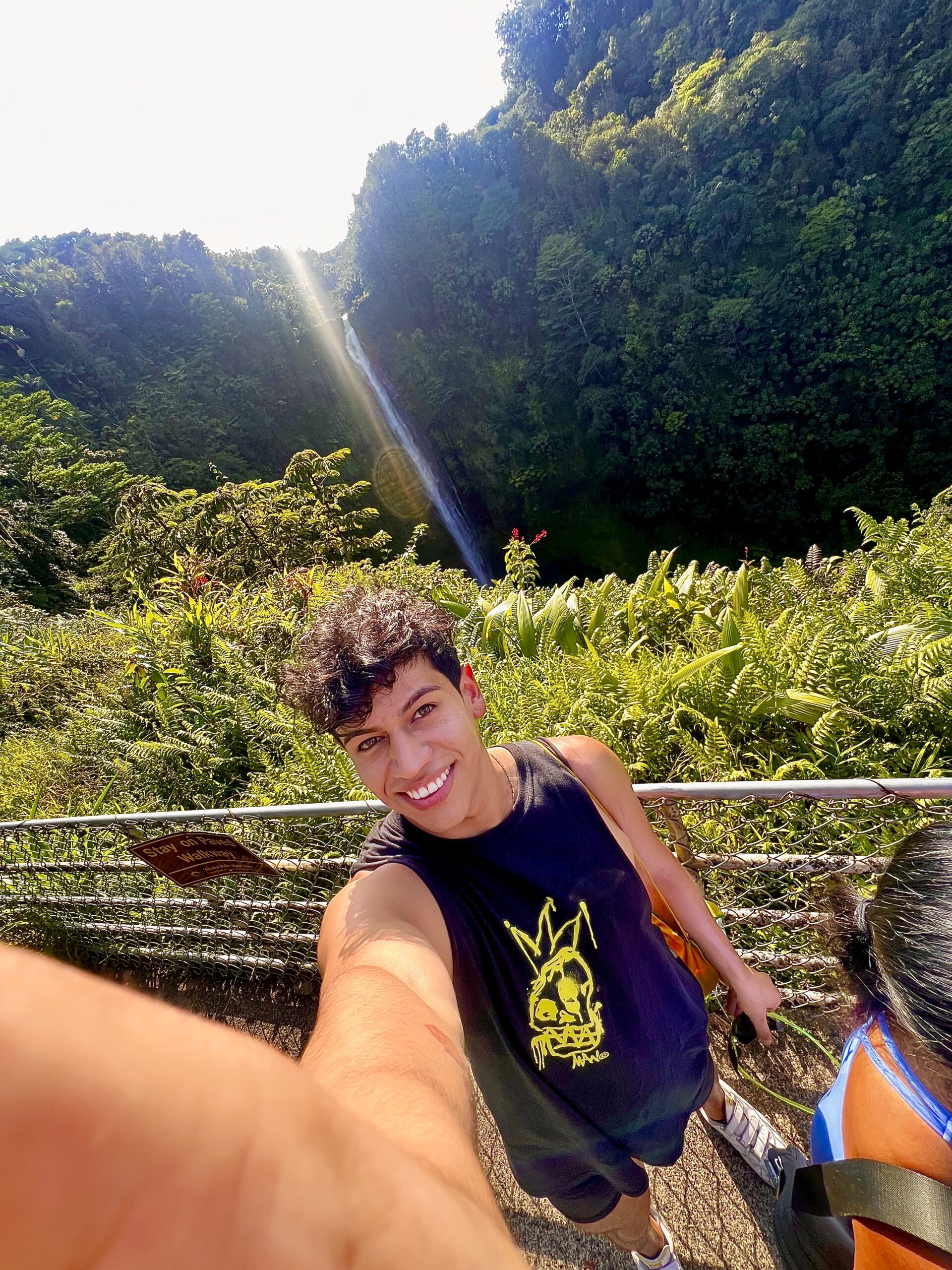A Journey of Science, Resilience, and Community Engagement
Sebastián Antonio Gallegos explores the intersections of science and community as he navigates life as a Ph.D. student.
Sebastián Antonio Gallegos began his love for science in high school through an outsourcing program in Berkeley. Through this program, Sebastián had the opportunity to learn basic lab techniques and developed an understanding of drug development within the pharmaceutical industry.
It was in this program that he met a blood cancer patient who informed Sebastián that the medication he received allowed him to live an extra year. “This made everything fall into place, and I knew that this would impact people’s lives,” says Sebastián.
As a second-year Ph.D. student in the UW Pharmaceutics program, Sebastián has adjusted to a new life as a grad student and in a new city. His current research centers around chronic heart failure and the prognosis of whether someone is going to have a heart attack or some form of heart failure. Sebastián explains that the radiopharmaceutical meta-iodobenzylguanidine (MIBG) is a noninvasive therapy utilized to scan and treat endocrine tumors within the body. But what scientists found in using MIBG is that it’s also an excellent prognosis for heart failure.
“The absorption and imaging of the heart with MIBG results is a powerful key clinical metric in predicting the likelihood of heart failure,” says Sebastián.
This clinical metric is called the H-to-M, or heart-to-mediastinum ratio, which measures MIBG uptake in the heart compared to the surrounding areas. The methodology can accurately predict fatal heart failure if the number is below a certain ratio.
“Recently, there were some studies done in the Wang Lab that challenged the current literature understanding of how this radiopharmaceutical enters the heart. My thesis focuses on how MIBG transports into the heart and how it can give an accurate clinical assessment for heart failure.,” says Sebastián.
The research lab Sebastián is a part of focuses on drug transporter proteins and is researching how MIBG transports into the heart in mice and humans. His work investigates how MIBG cardiac distribution relates to the development of chronic heart failure and its accurate clinical metric for predicting heart failure.
"If we have a better understanding of MIBG's transportation into the heart, hopefully, we can better understand how MIBG's clinical prognosis of heart failure works,"

Sebastián hiking in Hawai'i.
Building Community
Before his research at UW, Sebastián lived in the Bay Area, working in biotech as a lab researcher, making great money, connecting with a community of other queer people of color, and overall discovering himself.
“I really enjoyed my few years in the Bay Area. It was like a coming of age for me in finding myself,” says Sebastián.
After moving to Seattle with his former partner, Sebastián quickly realized the lack of diversity in Seattle. Another challenge for him was the contrast in weather from the sunny Bay area juxtaposed with Seattle’s gloomy climate. Shortly after moving to Seattle at the start of 2022, Sebastián and his partner ended their relationship. In a new city with no sense of community, Sebastián needed to find new ways to build belonging and a home in Seattle.
One of those ways to find community was by joining the Office of Graduate Student Equity and Excellence (GSEE). He first heard about GSEE before moving to Seattle when he received one of their emails about what life was like as a graduate student of color in Seattle. When the quarter started, he attended celebrations like Getting Connected and other community events that GSEE hosts.
“It was a way to let loose, have fun, and meet like-minded and cool people who looked like me and had similar experiences,” says Sebastián.
He also joined GSAB, the Graduate Student Advisory Board for GSEE, to help graduate students create fun, stress-relieving events like visiting a museum or even assisting students to sign up for EBT cards. He was also a part of Outreaching Grads and spoke on graduate student panels about his experience at UW with the intersectionalities he carries and advice for first-year students.
Even though Sebastián has several more years until he completes his Ph.D., the thought of life after graduate school is still present. Having had a taste of working in the industry, he knows that the weight of grad school is temporary and even dreams of living abroad one day in Latin America.
“One thing I’ve learned about grad school is it’s not about how smart you are; it’s about how resilient you are,” says Sebastián. “If you’re the smartest person in the room, you’re not in the right room.”
By: Tatiana Rodriguez, UW Graduate School
Published on February 05, 2024